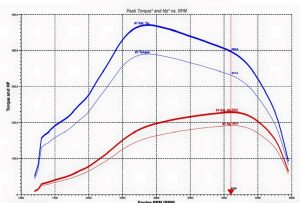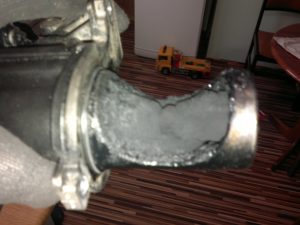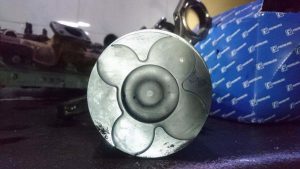We will provide some facts and guidelines aimed at offering you assistance in choosing a suitable tuner, who will offer high-quality service and whose only concern is not effortless quick profit who lacks knowledge or passion for this type of work.
It is evident that the world of tuning is a rather dishonest one, at least to those who work thoroughly, professionally and with greatest precision. This line of work requires peace, time, know-how, and a great deal of self-control and willpower.

Incomparable result after optimization professionals
Unfortunately, the industry is dominated by bad tuners with good marketing skills. This is why the reason behind the exposure of chip-tuning world’s “underground”.
If we briefly compare the performance of lump-sum or percentage tuners to that of professional ones, we can notice a considerable difference in their respective approaches.
Lump-sum tuners complete their work within five or ten minutes, while professionals discuss the entire operation of engine electronics at length and complete their work in a couple of days’ time (which does not imply that you will have to make do without a vehicle in the meantime). The difference is not noticeable merely in the measurements but also in improved driveability, engine operation, emissions, lifetimes, maintenance costs, etc. Let us emphasize once again that in 99% of instances you will end up with a bad tuning! Yes, this is the truth and we stand by our claims. You should therefore make thorough enquiries when deciding whom to choose and how they do their work.
If tuners are unwilling to share data with you, then they are, in fact, hiding from you how the results, which they are unsure of, were obtained, in order to prevent you from noticing that the work, for which you paid several hundred euros, was done quickly and is of poor quality. On the other hand, they might be solely the middleman and their work was actually performed by someone else; they only wrote the modifications to your vehicle, while the real tuners’ identities remain unknown.
Key factors to be considered when choosing a tuner
- Before seeing a tuner, make sure that you are familiar at least with your vehicle’s basic characteristics, including torque, power, motorway fuel consumption, combined fuel consumption, and urban fuel consumption.
- In this line of business, the price does not bear any real importance. In 99.99% of cases, you will be offered very poor quality and a high price. You could get a high-quality product for this price, however, proper enquiries must be made.
- When seeing a tuner and making enquiries about the price of making a “chip”, you could be given two answers: a) it costs € XXX, b) the price depends on what you wish to achieve and the make or model of your vehicle. If the answer is b), resume the conversation.
- A well-versed tuner diagnoses the vehicle, measures significant parameters, asks about service maintenance, checks the kilometres driven, listens to engine operation, takes the car for a test drive, then does the calculations for your vehicle and provides data and specifies limits within which you can determine the vehicle’s desired performance.
Let us elaborate in more detail:
If you mostly drive at low rpms and are interested in acceleration and responsiveness rather than in the final speed, the torque distribution curve will be defined differently than if you are interested in the final speed or somewhat higher speed for driving on motorways.
If you are interested in fuel economy in a particular engine operation range, the focus must be turned to the revolutions, speed and gear, in which you drive most often. The said data is used in calculations aimed at achieving the objective.

We do all changes by our self.
A professional product cannot be compared to a lump-sum or generic one, or as we tend to refer to it, to percentage tuning carried out by nearly all tuners, charging you staggering prices for a couple of minutes’ work. Such product is hardly worth €50. The problem is that the customer does notice a difference, however, they do not know what can be achieved if the vehicle is optimized by a professional in every sense of the word. It would make a world of difference – as if it were a completely different vehicle.
The results are absolutely incomparable! A satisfied customer’s smiling face is a reward for a job well done. Steer clear of the standard practice: come, pay, leave, no input. A tuner must ask you to provide as much data as possible and then define limits, within which you can decide on the vehicle’s desired performance.
All this can be done, but tuners must be able to deliver, have the willpower, patience, persistence and, most of all, love what they do.
A combination of all these factors can lead to a unique product of high quality. Everything else is not worth mentioning, it is merely haggle and blowing smoke. If you collaborate with the tuner, the end product will be partly yours, meaning that the vehicle will be optimized according to your wishes and you will take a great pleasure in it.
An optimized vehicle must not:
shake
have poor ignition
produce smoke
make loud noises
accelerate unevenly
indicate faults in the engine electronics
affect the ecological components (EGR, FAP, catalytic converter).
The exact opposite should be the case. A tuned vehicle must run smoother than before and, most of all, smoke-free.

The result of poor tuning

Injection at the right moment. The prints in the right places.
Avoid praising technology used by tuners when measuring a vehicle’s power – good tuners calculate the entire torque and power curve without any test measurements. They achieve the desired result in the first attempt because they make precise calculations and offer warranty on the curve at hand. Amateur tuners will perform tuning and measure the power, whereupon they will present a graph of what you obtained. However, it should be vice versa: It is you who must specify your wishes, the tuner acts accordingly, and the measurement must be exactly as promised with possible minimal deviations. Good tuners make mistakes in the range of 2 to 3 HP and usually predict a somewhat lower power rather than the actual one, since some HP gets lost due to wear and tear of materials.
To boost sales and income, bad tuners promise a few dozen horses more than they can deliver qualitatively (smoke, vibrations, galloping, the vehicle does not run smoothly, makes noises, engine choking at low rmps, poor ignition, check engine light alerts, etc.); in short, according to them everything is supposed to be perfect and they to not state any possible negative features.
Good tuners are realistic, state key facts and provide answers to your questions.
